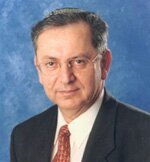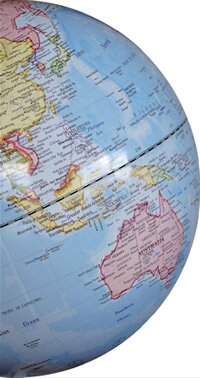| Jewish Education in an era of 'Globalisation' |  |
 |
The process of globalisation, which is supposed to transform the world into one big village, threatens the very existence of many national cultures. It is a mighty force whose enormous pull decrees that uniqueness and particularity are provincial and destined to be pushed to the margins. The vision described in Genesis 11:6: “Behold they are one people and they all have one language” seems all too real. But people forget that this story had a destructive end. The people viewed themselves as equal to God, and used their unity to forge a war against the Divine. Therefore, the Creator intervened to scatter them across different lands, with different cultures and different languages. Jews who ignore God’s reckoning and the lessons of the past 200 years and who believe that “all is foreseen” should not rely on a miracle from heaven to suddenly appear and topple the post-modern tower of Babel. Instead, they must look clearly and intelligently at all the dangers and challenges that globalization places on Jewish culture, as well as on the collective existence of the Jewish people. It is not by chance that I use the plural. The Jewish problem in this context is multifaceted.
Among other things, it is bound to the fact that globalisation is based on advanced knowledge, to which the best Jewish minds contributed so much and, as such, were enchanted by it and rightfully fearful of every effort to denounce globalisation. It involves the opening of global horizons that contributed to the breakdown of many barriers that once restricted the Jews. But it also involves the weakening of our connection to the origins of Jewish culture. In addition, globalisation threatens the concept of the national state, and thus the legitimacy of the Jewish state, Israel, a mainstay of the Jewish collective. Globalisation also supports the disturbing efforts to turn Israel into a non-denominational state, even though the country was specifi cally established for the Jewish people after the need for a safe haven for Jews had been proven beyond doubt. And globalisation accelerates assimilation and estrangement throughout the Jewish world, including Israel. If we add to this the current low Jewish birthrate, a direct result of the improvement of our socio-economic status that accelerates globalisation itself, it is easy to see why the Jewish population is decreasing almost daily. Realistic estimates indicate that the number of Jews in the world decreases by about 100 every day. The writing on the wall could not be clearer. However, the course of events is not predetermined and the battle not yet lost. First of all, the legacy of Judaism is based on universal values, and it bequeathed its essence to Western culture, the mother of globalisation. Judaism gave the world the morality embodied in the Ten Commandments, the visions of the prophets, and the majestic poetry of the Book of Psalms, without which modern civilisation would be devoid of hope. The Jewish legacy also teaches the precept “and you shall live by them,” which means adaptation to new circumstances and the avoidance of outmoded doctrines while guarding basic values. In our Jewish heritage we find, among other things, the wonderful saying of the Rambam: “You will not achieve Divine knowledge until you have first comprehended nature.” Progress is neither alien nor opposed Judaism. It is its very flesh and blood. The Jewish legacy, the skeleton of Jewish culture, can meet the challenge of globalisation, providing we know what that legacy is. That is to say, we must formulate a feasible plan of action to develop appropriate courses for a solid Jewish education. There is no single focus and no unique way to realise this mission. It is a challenge for philosophers, policy shapers and decision makers, together with writers, scientists and scholars across the entire academic spectrum. It falls upon the leading figures of the Jewish people both in Israel and abroad. No one is required to take the mission entirely upon himself; but no one is absolved from it or even permitted to wait until enough people express similar views so that he is not a lone warrior. A synergic effort will produce a result far greater than its parts.
I write these words following the debate in Israel over the question, “Who is a Jew?” I have come to the conclusion that, above all other criteria, a Jew, male or female, is someone who can promise that his grandchild will be Jewish. I am a believing Jew, a scientist committed to thinking rationally, and at the same time I have the great honour to be the President of Bar-Ilan University. From its beginning, our university was established as a Jewish institution of higher education, and is now the largest of its kind worldwide. Within can be found the best and largest faculty of Jewish studies in the world. In the fullest sense of the word, our university is an academic institution that emphasises freedom of research and aspires towards excellence. From this perspective, my university colleagues and I diligently call on Israeli society, its leaders in all disciplines, to nurture its own solidarity and that of the Jewish people as a whole. We recognise our obligation to contribute every effort to repair moral injustice in Israel, and to increase the attractiveness ofIsrael in the eyes of every Jew. Moreover, we remind our brethren in the Diaspora, who are as fearful as we for the future of the Jewish people in this era of globalisation, to redouble their efforts to strengthen Jewish education in their own communities. Time is running out. And we are not satisfied with words alone. Our School of Education is one of the most important departments of the university. Its new building is being constructed at the cost of US$18 million dollars donated by the Jim Joseph Foundation (USA), for which we are deeply grateful. One of our central aims is to make this school a centre for the training of Jewish teachers and educators from around the world, especially from the United States. We are also planning to bring hundreds of Jewish students from the Diaspora to our campus every year, from bar mitzvah age up and to give them hands-on experience in Israeli Judaism. But most important, we are working to the best of our abilities to emphasise the horizons and many faces of our Jewish legacy through the research and teaching efforts of the entire university. The continued existence of the State of Israel relies on the fact that we are not a solitary people who think only of ourselves, but Israel is the beating heart of the entire Jewish people. In these stormy days Israel will fi nd the strength for its survival in its remarkable spirit.
Submitted by Professor Moshe Kaveh. Professor Kaveh is President of Bar-Ilan University and until recently chaired the Council of University Presidents in Israel. (Issue June 2008)
|




